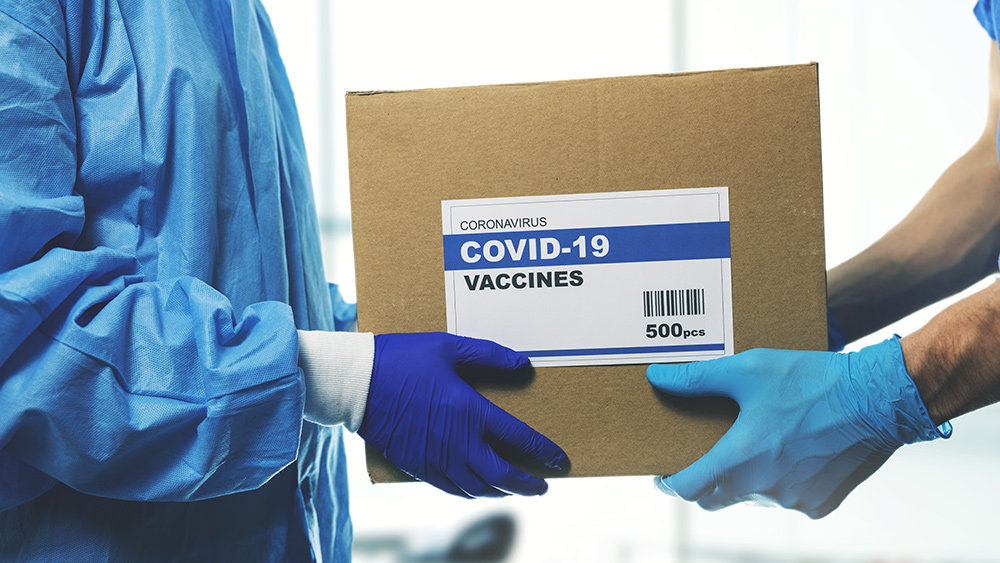Natural News) Blood clots are rightfully one of the more attention-grabbing side effects of COVID-19 vaccines, but Israeli scientists are also warning about another potential side effect: herpes infections.
A study that appeared in the Rheumatology journal notes that scientists there have identified six cases of patients developing the herpes zoster skin rash after receiving the Pfizer vaccine, and other cases have since come to light.
Herpes zoster, also known as shingles, begins as an itchy skin rash with small red bumps, and it can lead to pain and nerve damage if left untreated. It also causes a prolonged burning sensation on the skin that can last long after the rash has disappeared.
According to researchers from the Carmel Medical Center in Haifa and Tel Aviv Sourasky Medical Center, patients with autoimmune inflammatory rheumatic diseases have a higher risk of developing a herpes infection in response to the vaccine.
They found that 1.2% of patients who received the vaccine experienced the infection. All of the patients involved had mild cases of autoimmune inflammatory rheumatic diseases. Although this infection is more common in older people, all of the patients who experienced this particular side effect were young; a few were in their 30s.
Five of the patients developed herpes zoster following their first dose of the vaccine, while the sixth developed the infection following their second dose. Although doctors cannot say that the vaccine causes herpes at this point, it does appear that it could be triggering the infection in some patients.
The study’s lead researcher, Dr. Victoria Furer, told the Jerusalem Post that after the study was published on April 12, she received emails from patients all over the world reporting that they had also developed herpes zoster after getting the vaccine.
Because immunosuppressed individuals were not allowed to participate in initial clinical trials, it is possible that more cases of herpes zoster and other side effects could begin emerging as many countries’ vaccine efforts continue and people with a range of conditions experience reactions.
Skin reactions common after COVID-19 vaccine
Many patients have been experiencing skin reactions after receiving COVID-19 vaccines, particularly the Pfizer and Moderna shots. Some are experiencing full-body rashes that start within days of the vaccine, while others are experiencing immediate allergic reactions within the first four hours of getting the jab. It is not known exactly how common these reactions are because not everyone reports them to a registry.
One of the most common reactions to the vaccines is a raised and itchy red rash that can occur as much as a week after getting the shot and is referred to as covid arm or Moderna arm; most of these reactions are being seen in people who receive the Moderna vaccine.
Another issue that some people who have been vaccinated are experiencing is known as covid toes. This appears as bumps or sores emerge on a patient’s toes and sometimes fingers with red or purple swelling that have been linked to inflammation in the blood vessel walls.
Blood clot concerns continue
While these reactions can be very uncomfortable – not to mention frightening – the media is quick to downplay them and remind people that the risk of rashes is a small price to pay for some degree of protection from COVID-19. However, amid all the noise about “harmless” rashes, no one should lose sight of the fact that blood clots are a very real and life-threatening side effect that has caused COVID-19 vaccines to be pulled from the market in some countries.
The AstraZeneca vaccine has been taken out of circulation in some places in Europe because of its link to blood clots. In the U.S., at least seven patients who were given the Johnson & Johnson vaccine have also experienced blood clots in the brain – one man and six women. Its use has now been put on pause over the concerns. Both of the vaccines linked to blood clots are adenovirus vector vaccines.
Unfortunately, we are probably going to hear about even more vaccine-related side effects in the coming months as more people get these experimental jabs. COVID-19 is a serious illness, but it is important to weigh the risks of the vaccine carefully – and the fact that we don’t even know what all the risks are yet – before lining up for a shot.
Sources for this article include:

Your Daily Briefing:
Fight Online Censorship!
Get the news Google and Facebook don't want you to see: Sign up for DC Dirty Laundry's daily briefing and do your own thinking!

